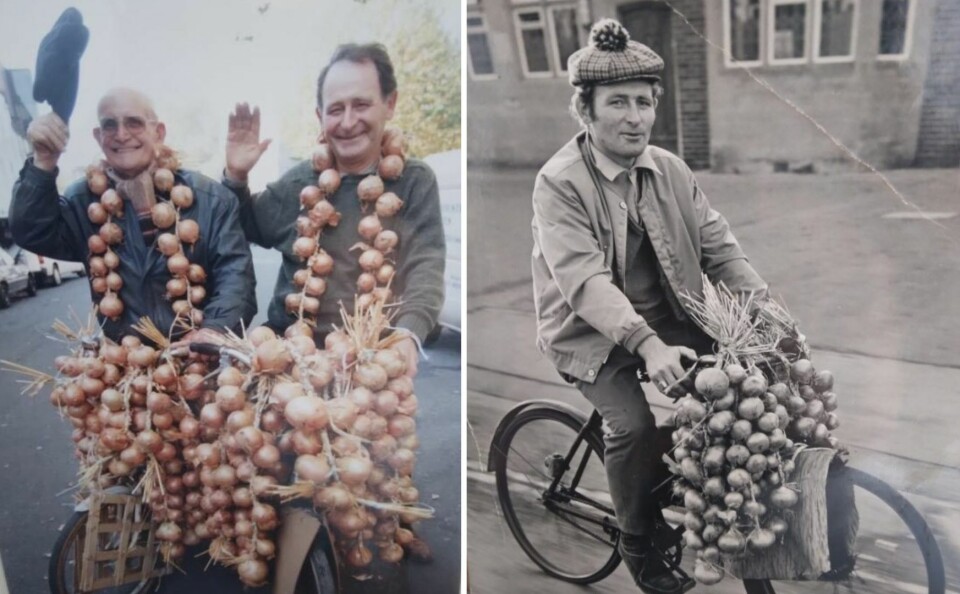-
Five iconic French dishes from different regions
Explore the rich culinary heritage of France with these traditional dishes, from cassoulet in Occitanie to cari poule in La Réunion, showcasing the country's geographic and cultural diversity
-
Fire-hit bakery finds lifeline through unique partnership with butcher
Local residents rally to help two well-known traders
-
Why does eastern France celebrate Saint-Nicolas on December 6?
Father Christmas may be known for his present delivery on December 24, but in the east of France, another bearded figure bearing gifts is celebrated much earlier in the month
Brexit and Covid mean the last true French Onion Johnnies have gone
Ending the 200-year-old tradition of Breton farmers taking their famous onions to the UK to sell. One Onion Johnnie shares his story

A double whammy of Brexit and Covid has wiped out the traditional Onion Johnnies of Roscoff.
The Johnnies were onion growers from Brittany who, in the early 19th century, decided to try selling across the Channel.
They started in Wales as many were Breton speakers and found Welsh easier to understand than English.
Read more: From France’s Eurovision entry to Harvard: Five Breton language facts
Their Roscoff onions spoke for themselves, being very mild with pink, easily-peeled skins. They have a distinctive taste and can be eaten raw.
As sales flourished, Johnnies spread all over the UK and people called them all ‘Johnny’.
The Maison des Johnnies in Roscoff said this was because the name Jean was common in Brittany.
Others cite Johnny as a generic name – Johnny foreigner.
They would grow onions in the first half of the year, then take their harvest to Wales and spend up to five months selling strings of onions door to door. François Seité was one.
A family business
Now 82, he said his grandfather and his father were Onion Johnnies.
“I first went over to Bristol in 1953 with my father when I was just 13. It was amazing. My first time in a big city.
“Everything was so different. It was a huge adventure and I discovered so many things: the money, driving on the left, the food. I learned English and I loved breakfast!”
They would store their harvest in Bristol and go out every day selling door to door on bicycles festooned with strings of onions.
“It was hard work but we loved it. We went all over, as far as Birmingham and Oxford, and we made loads of friends.”
It was a lifestyle
They worked together until 2000 when his father finally retired at 87.
“It wasn’t just a job, it was a passion. England was my father’s second home, and he loved going there. He knew everyone in all the little villages around Bristol. We would go in mid-July and come back to Roscoff for Christmas.
“We stayed in all sorts of places – some not so nice in the early days.”
Long absences were disruptive to family life and his three children chose other careers, but he loved his life in both city and small village, working in sales as well as agriculture.
“We had two languages, two lifestyles, and it was very convivial. People would ask us for tea on Sundays and we enjoyed going to the pubs. We also sold onions in the pubs, of course.”
The last Johnnie
Mr Seité retired in 2001, but would return unofficially every year, until Brexit and then Covid made it impossible.
He says there is one Johnny left who takes onions to the UK.
“But he takes a lorry over and sells wholesale, mainly to farm shops. He only stays a fortnight at a time, but goes all over, to London and even Scotland and sells a lot.
“So that’s the last of the Johnnies.”
Related articles
The only company making wooden jigsaws by hand in Europe is French
Makhilas: Discover traditional Basque walking sticks made in France
























